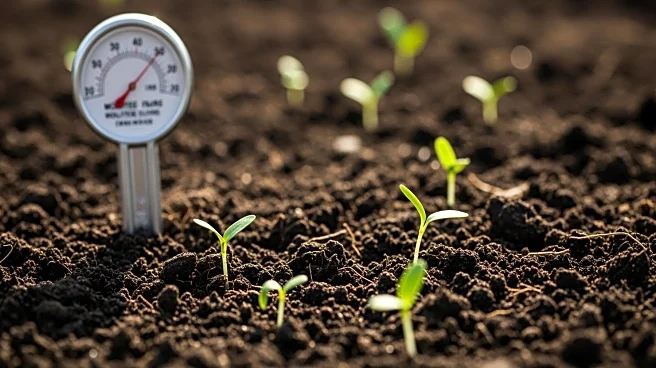What's Happening?
Recipients of SNAP food assistance benefits face a looming deadline as the government shutdown threatens to halt funding. The Supplemental Nutrition Assistance Program, serving nearly 42 million people
monthly, may not be able to refill benefits cards starting November 1 if the shutdown persists. The Department of Agriculture has warned states that there may not be enough funding to pay full SNAP benefits in November. Some states have already announced plans to suspend benefits if the shutdown continues, potentially disrupting food access on a large scale. State leaders are advising recipients to turn to food banks or use remaining benefits to purchase non-perishable items.
Why It's Important?
The potential suspension of SNAP benefits due to the government shutdown could have severe consequences for millions of low-income individuals and families who rely on the program for food security. The situation highlights the critical role of federal funding in supporting vulnerable populations and the challenges faced by states in managing resources during a political impasse. The inability to provide SNAP benefits could lead to increased demand on food banks, which may struggle to meet the needs of affected individuals. The shutdown also underscores the broader political debate over health care provisions and funding priorities, with Democrats and Republicans needing to reach an agreement to reopen the government.
What's Next?
As the November 1 deadline approaches, pressure is mounting on Congress to resolve the funding impasse. State leaders are preparing for the possibility of suspended SNAP benefits, advising recipients to stock up on non-perishable foods. The situation is likely to prompt further discussions on the priorities and responsibilities of the federal government in providing essential services. If no agreement is reached, the suspension of SNAP benefits could lead to increased reliance on food banks and charitable organizations, highlighting the need for a long-term solution to ensure food security for vulnerable populations.
Beyond the Headlines
The government shutdown and the potential suspension of SNAP benefits raise ethical questions about the federal government's responsibility to ensure food security for its citizens. The situation reflects broader ideological differences between political parties and the challenges of reaching a consensus on funding priorities. The debate over health care provisions and SNAP benefits underscores the complexities of public policy and the role of government in addressing social welfare needs. The potential impact on food access for millions of Americans highlights the importance of finding a resolution to the political impasse.








